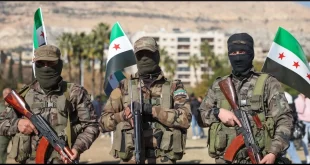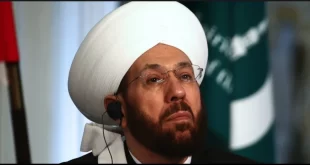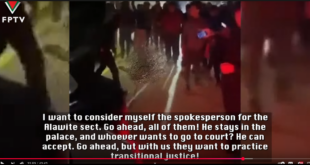Jan 27, 2014, Reuters
Light arms supplied by the United States are flowing to “moderate” Syrian rebel factions in the south of the country and U.S. funding for months of further deliveries has been approved by Congress, according U.S. and European security officials.
The weapons, most of which are moving to non-Islamist Syrian rebels via Jordan, include a variety of small arms, as well as some more powerful weapons, such as anti-tank rockets.
The deliveries do not include weapons such as shoulder-launched surface-to-air missiles, known as MANPADs, which could shoot down military or civilian aircraft, the officials said.
The weapons deliveries have been funded by the U.S. Congress, in votes behind closed doors, through the end of government fiscal year 2014, which ends on September 30, two officials said.
The apparently steady weapons flow contrasts with the situation last summer, when lethal U.S. aid to the Syrian rebels dried up for a time due to congressional reservations.
Congressional committees held up weapons deliveries for months over fears that U.S. arms would not prove decisive in the rebels’ efforts to oust President Bashar Assad and his government and could well end up in the hands of Islamist militants.
A U.S. official familiar with recent developments said national security officials and members of Congress are more confident that weapons delivered to southern Syria are going to, and remaining in, the hands of moderate rebels rather than militant jihadist factions.
Congress approved funding for weapons deliveries to the Syrian rebels in classified sections of defense appropriations legislation, two sources familiar with the matter said. It was not clear when the funding was approved, but unclassified defense funding passed Congress in late December.
Some additional budget tweaks may be necessary to ensure that all the approved funding is fully available for disbursement during the current fiscal year.
Yet, officials who support providing U.S. arms to the rebels acknowledge that this has not greatly increased U.S. expectations of victory by anti-Assad forces, whether moderate or militant.
“The Syrian war is a stalemate. The rebels lack the organization and weapons to defeat Assad; the regime lacks the loyal manpower to suppress the rebellion. Both sides’ external allies… are ready to supply enough money and arms to fuel the stalemate for the foreseeable future,” said Bruce Riedel, a former senior CIA analyst and sometime foreign policy adviser to President Barack Obama.
Both U.S. and European officials said that “moderate” rebels had recently consolidated their positions in the Syrian south, where they are pushing out elements linked to al-Qaeda. More militant factions remain dominant in the north and east.
Another recent development favorable to more moderate factions is that Kurdish groups that had been providing weapons and other aid financed by donors in the Gulf state of Qatar indiscriminately to both moderate and religious extremist rebel factions had greatly reduced their involvement in the arms traffic, one of the officials said.
A White House spokeswoman had no comment. Other U.S. agencies did not respond to requests for comment.
As for “non-lethal” aid like communications and transportation equipment, the United States hopes to resume deliveries to moderate groups in Syria soon, a U.S. official said on Monday.
The United States and Britain suspended non-lethal aid to northern Syria in December after reports that Islamist fighters seized Western-backed rebel weapons warehouses, highlighting fears that supplies could end up in hostile hands.
“We hope to be able to resume assistance to the SMC shortly, pending security and logistics considerations,” said the official, referring to the Supreme Military Council moderate rebel group. “But we have no announcements at this time,” he said, speaking on condition of anonymity.
Non-lethal aid was resumed to civilian groups in that region in late December.
 Syria Support Movement solidarity with the Syrian people
Syria Support Movement solidarity with the Syrian people




